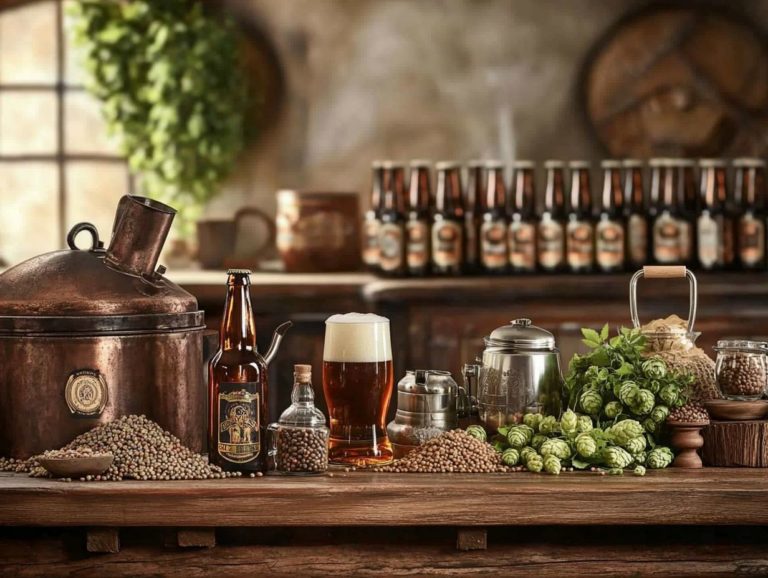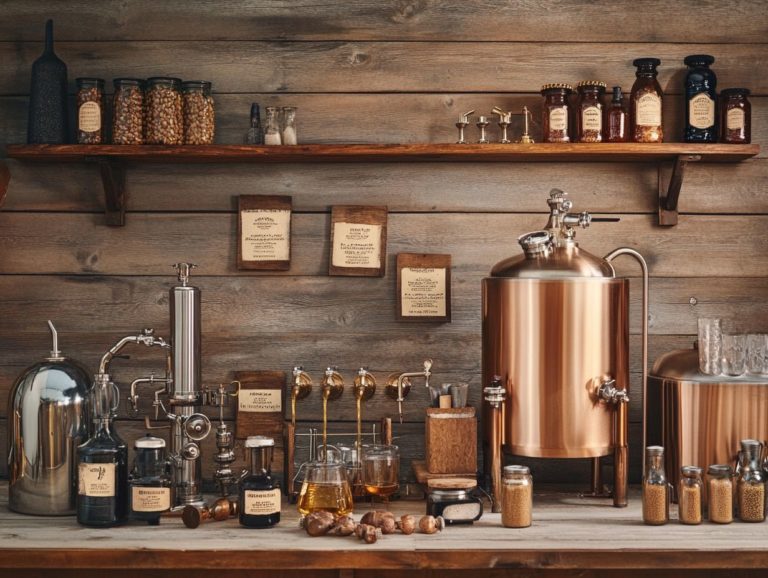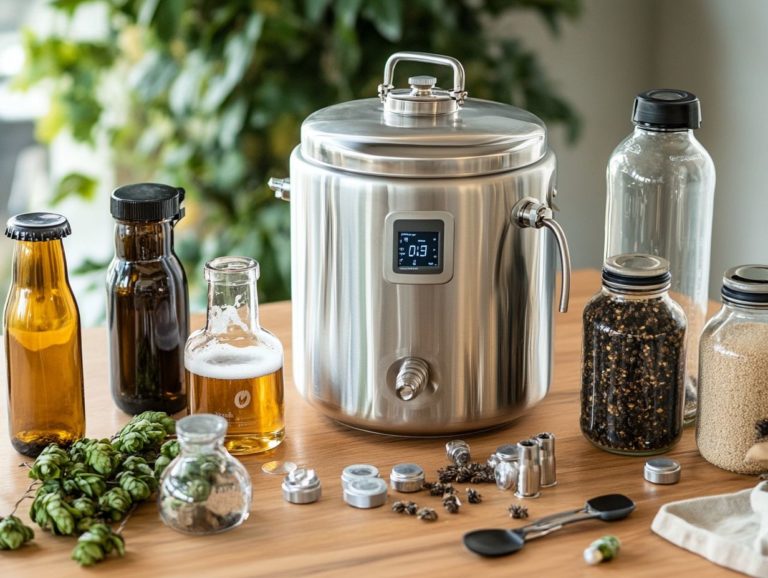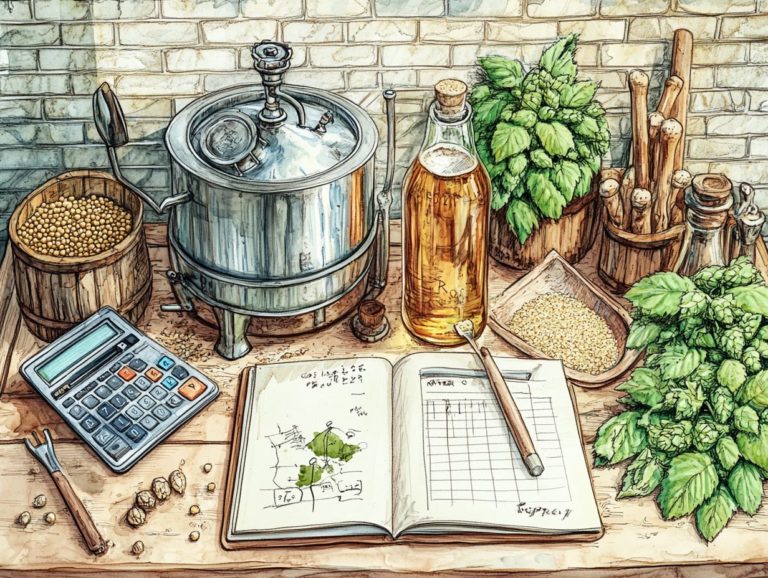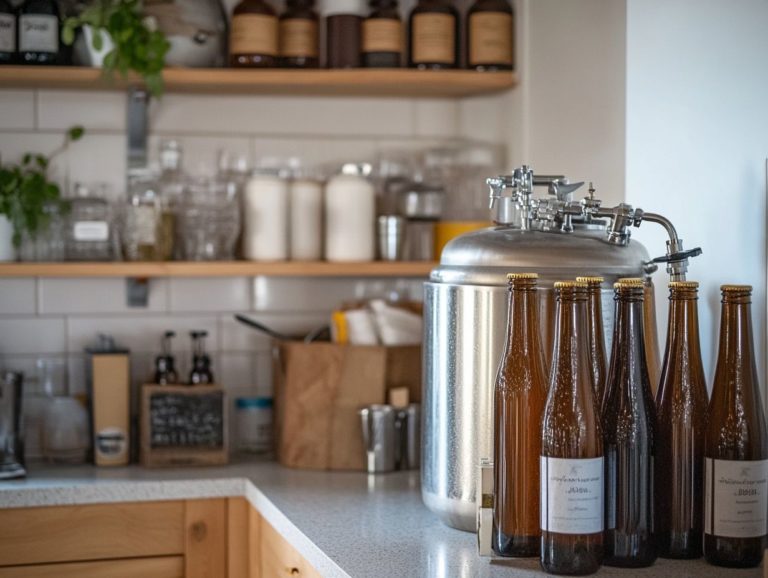Understanding Water Quality for Home Brewing
When you dive into home brewing, the quality of your brewing water can truly make or break your beer. It s far more than just a base ingredient; it shapes the flavor, aroma, and overall character of your brew.
This exploration delves into the significance of water quality in brewing and examines how various water types, such as tap water, distilled water, and spring water, can influence the taste of your favorite creations. It also guides you through the process of testing your water, enhancing its quality, and steering clear of common pitfalls.
Get ready to transform your brewing skills and impress your friends with amazing beer!
Contents
- Key Takeaways:
- What Is Water Quality?
- Why Is Water Quality Important for Home Brewing?
- What Are the Different Types of Water Quality?
- How to Test Water Quality for Home Brewing?
- What Tools Are Needed to Test Water Quality for Home Brewing?
- How to Improve Water Quality for Home Brewing?
- Improving Water Quality for Homebrewing
- What Are the Common Mistakes to Avoid in Water Quality for Home Brewing?
- Frequently Asked Questions
- What is water quality and why is it important for home brewing?
- How can I test the water quality for home brewing?
- What are the key factors to consider when evaluating water quality for home brewing?
- How can I adjust the water quality for home brewing?
- Can poor water quality affect the fermentation process?
- How often should I test the water quality for home brewing?
Key Takeaways:
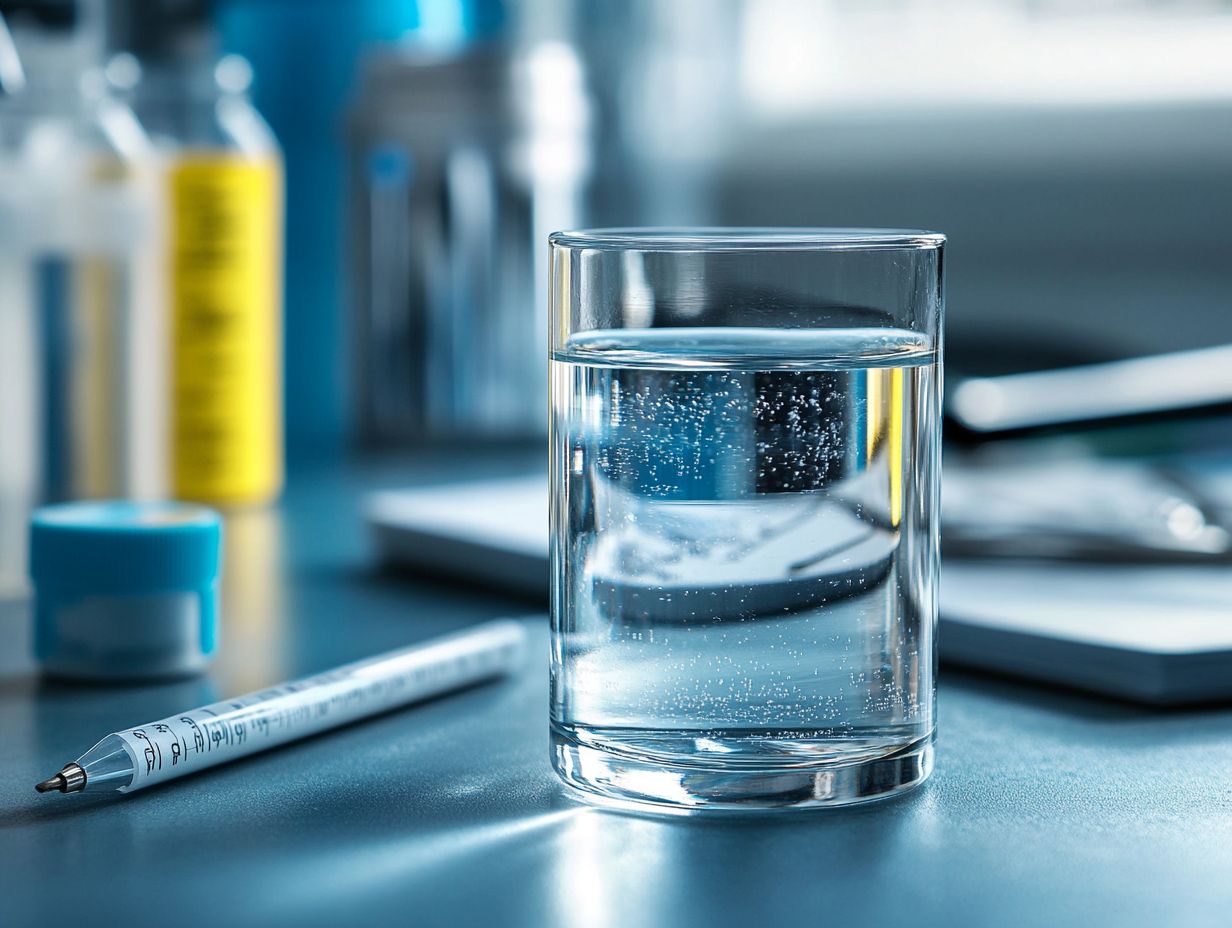
- Water quality is crucial for home brewing as it directly affects the taste of beer.
- Recommended water quality levels for home brewing include pH, alkalinity, and mineral content.
- Testing and improving water quality for home brewing can be done with essential parameters and various methods, such as filtration and mineral additives, including gypsum (calcium sulfate) and Epsom salt.
What Is Water Quality?
Water quality stands as a crucial element in your brewing process, impacting not just the efficiency of extraction during all-grain brewing but also the ultimate flavor and aroma of the beer you create.
Homebrewing enthusiasts must pay close attention to their water chemistry to ensure the best results. Considerations like mineral content, pH balance, and the presence of specific ions in your water are vital in shaping the interaction of ingredients during fermentation. This underscores the importance of cultivating a thorough understanding of water chemistry and water properties.
The brewing water source be it tap water, distilled water, or spring water can vary significantly in its mineral profiles and treatment processes, which in turn can greatly influence the quality of your brewing water.
Why Is Water Quality Important for Home Brewing?
Water quality is essential in home brewing, as it plays a crucial role in shaping the beer s flavor, aroma, and mouthfeel. Ultimately, this influences the success of your brewing journey. Understanding water chemistry impacts all aspects of the brewing process.
The chemical makeup of your brewing water, including the balance of vital minerals like calcium and magnesium and the balance of sulfate and chloride, can either elevate or undermine the intended beer style. Water hardness, including alkalinity and mineral profile, should be closely monitored.
By properly treating your water and making adjustments with minerals added to water to improve beer flavor and chemicals, you can ensure that the water profile matches the specific characteristics required for various types of beer. This makes it vital for you to regularly analyze your water quality and conduct water testing.
What Are the Different Types of Water Quality?
As a homebrewer, you ll want to consider the various types of water quality at your disposal, such as tap water, distilled water, and spring water. Each of these options comes with its own unique properties and mineral content, which can have a significant impact on your brewing process and the beer styles you aim to create.
When evaluating tap water, it s crucial to examine its chemical treatments, as these can alter the flavor profile of your final product, potentially rendering it unsuitable for certain brews. While distilled water is free from chemicals, it may leave your beer lacking in depth due to the absence of essential minerals necessary for yeast health and flavor development. Tools like a carbon filter can help improve the quality of your tap water.
Spring water, with its naturally occurring minerals, can elevate both flavor and fermentation. However, it s important to analyze its composition to ensure it aligns with the style of beer you re aiming to create. For instance, if you re crafting delicate lagers, soft water is your best bet, while a higher mineral content is more suited to bold stouts and IPAs.
Tailoring your water source to achieve the perfect balance in your creations is key to a successful brew. Water testing kits and software like Bru n Water or BrewFather can be incredibly helpful.
How Does Water Quality Affect the Taste of Beer?
The quality of the water you use in brewing has a direct impact on the taste of your beer. Variations in mineral profiles, including calcium, magnesium, sulfate, and chloride, can either enhance or alter the malt flavors and hop bitterness in your brew. If you increase the sulfate content, you’ll accentuate the hop character. In contrast, elevated chloride levels can lend a smoother, maltier taste.
Adjusting your brewing water enhances flavor profiles. This elevates your brewing experience. Therefore, meticulous control and testing of water quality are essential for optimal beer production. Utilizing a water report can aid in this process.
Understanding the specific mineral content of your water not only aids in flavor development but also supports yeast health. For example, calcium plays a crucial role in yeast health and clarity by assisting with the flocculation process where yeast clumps together for clearer beer during fermentation. Adjusting with brewing salts like Gypsum and Epsom salt can help achieve the desired conditions.
In IPAs, the crispness tied to a bold hop presence is significantly influenced by sulfates, which enhance vibrant herbal and citrus notes. Dark beers thrive with softer water profiles that spotlight rich, roasted malt flavors by increasing chloride levels. Using brewing software can help manage these adjustments effectively.
Ultimately, the intricate interplay between water quality, brewing techniques, and the fermentation process underscores the importance of paying close attention to the chemistry of your ingredients. Tools like a pH meter and water analysis will help maintain the desired water quality.
What Are the Recommended Water Quality Levels for Home Brewing?
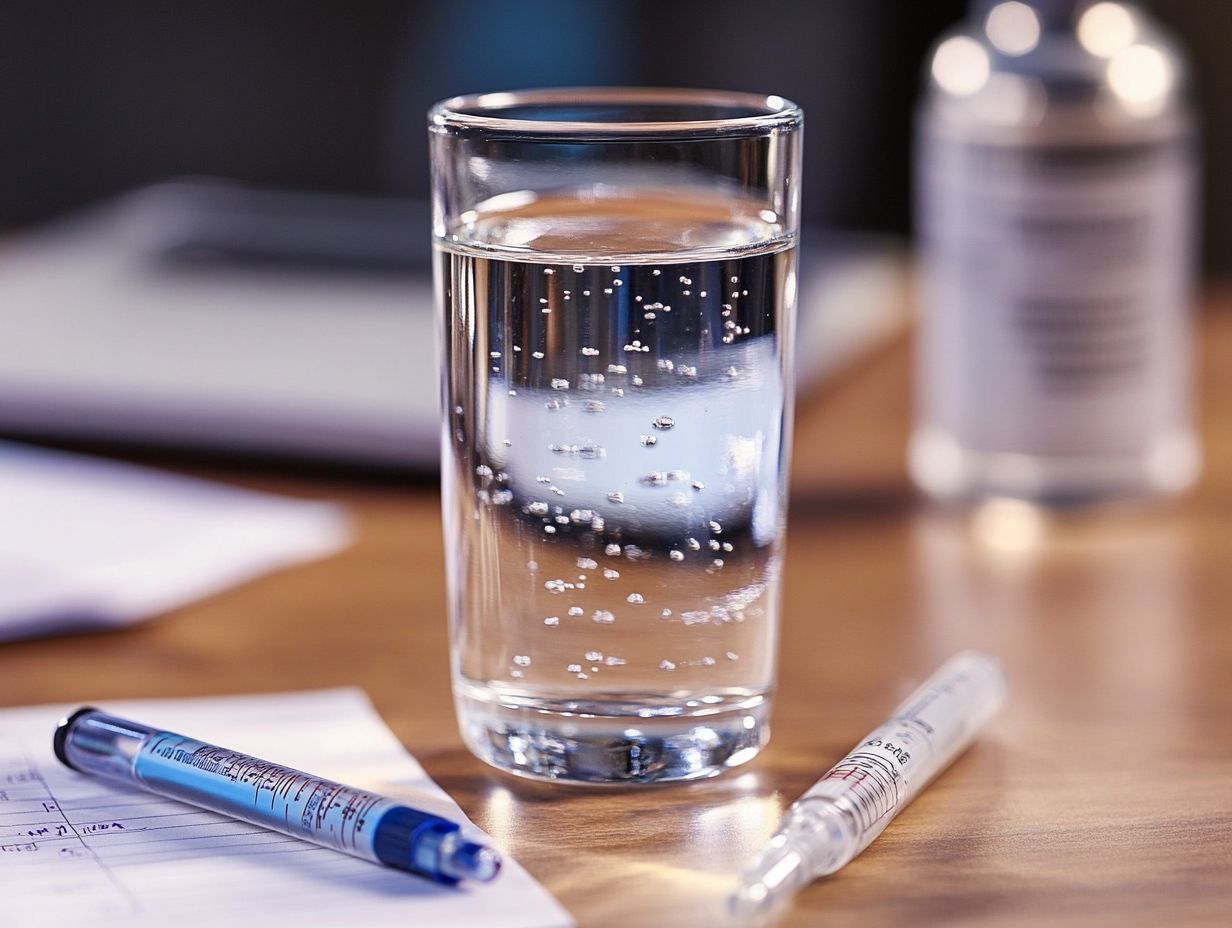
For your home brewing endeavors to truly shine, it s essential to pay attention to recommended water quality levels, which dictate the ideal mineral profile tailored for various beer styles. Key parameters like calcium, magnesium, alkalinity, and pH should be assessed through thorough water testing and analysis to ensure they align with the desired characteristics of your final product. Regularly reviewing a water quality report provides valuable insights.
Water quality reports offer invaluable insights into these levels, enabling you to make informed adjustments to your brewing water. By maintaining optimal levels, you enhance yeast health during fermentation and maximize the extraction of flavors from the malt and hops. Methods like adding potassium metabisulphite or lactic acid can be used for precise adjustments.
Different beer styles call for specific mineral compositions. For example, pale ales often thrive with higher sulfate levels to emphasize hop bitterness, while stouts typically benefit from a more balanced profile enriched with chloride. Mastering these nuances empowers you as a homebrewer to craft your favorite brews!
Regular water testing allows you to make proactive adjustments, preventing potential spoilage or undesirable off-flavors.
With the growing availability of home testing kits, achieving the ideal mineral balance has never been more accessible. Homebrewing enthusiasts can now easily measure and adjust their water composition. With home testing kits available, you can now elevate your brewing game like never before!
How to Test Water Quality for Home Brewing?
Testing water quality for home brewing is a critical practice that enables you to assess the suitability of your brewing water and make the necessary adjustments. By employing a brewing test kit, you can analyze key parameters such as pH, alkalinity, and mineral content, all of which are vital for crafting the ideal water profile for your recipes. Ensuring optimal alkalinity hardness is crucial for successful brewing.
A pH meter delivers precise measurements, while water quality reports from testing laboratories like Ward Labs provide comprehensive insights into the chemical composition of your water source. This meticulous approach helps you create optimal conditions for fermentation and enhances the overall quality of your beer.
Don t wait start testing your water today and craft the perfect brew!
What Are the Essential Parameters to Test for in Water Quality?
When testing water quality for brewing, you must evaluate key parameters. These include pH, alkalinity, and essential minerals like calcium, magnesium, and sulfate.
These factors impact brewing directly, influencing everything from malt extraction to yeast health during fermentation. By understanding these elements, you can make informed decisions about water treatment and adjustments.
Regular water testing is crucial to maintaining the perfect balance, so don t skip this step! For instance, aiming for pH levels between 5.2 and 5.6 is optimal for enzyme activity during the mash. The right alkalinity helps buffer pH effectively throughout the brewing process.
Calcium enhances yeast clarity and flocculation, while magnesium contributes to flavor development. Don t forget about sulfate, which sharpens hop bitterness striking the right balance is essential. You can use Campden tablets to manage unwanted chlorine and chloramine.
To measure these parameters accurately, consider investing in a reliable water testing kit from brands like Bru n Water or sending samples to a lab. Regularly monitoring and adjusting your water composition helps achieve a consistent brewing profile that complements your unique recipes.
What Tools Are Needed to Test Water Quality for Home Brewing?
To effectively test water quality for your home brewing endeavors, you’ll need a few essential tools. A brewing test kit is a must-have, along with a reliable pH meter and access to water quality reports from testing laboratories like Ward Labs.
Your brewing test kit will typically include reagents and equipment that measure key parameters like mineral content and alkalinity. The pH meter is your precision ally, ensuring you accurately measure acidity levels.
Obtaining a water quality report gives you a comprehensive overview of your water’s mineral profile and chemical composition. This information enables you to make informed decisions about water treatment. Adjustments with chemicals like lactic acid can refine the water profile.
In addition to these primary tools, don’t overlook the importance of a total dissolved solids (TDS) meter. This device measures the concentration of dissolved substances in your water, giving you further insight into its overall quality.
Understanding your water chemistry is crucial. A refractometer can also be handy for assessing sugar concentrations, especially during the brewing process. Considering your water profile can make a significant difference.
For reliable brands, consider Oakton and Hanna Instruments for your pH and TDS meters. They re known for their accuracy and durability, giving you consistent results. Investing in quality brewing equipment significantly enhances your homebrewing experience.
To use these tools effectively, ensure you regularly calibrate your pH meter, follow the instructions that come with your brewing test kits, and carefully interpret your water quality reports. Tailoring your brewing water profile will optimize the final flavor of your brew, influencing factors like alcohol content and malt flavors.
How to Improve Water Quality for Home Brewing?
Enhancing water quality for your home brewing endeavors is essential for achieving the rich flavor and aroma profiles you desire in your beer. There are several effective methods for water treatment and adjustments, which directly impact your brewing process.
You can utilize brewing salts like gypsum and Epsom salt to tailor the mineral content of your water, ensuring it meets the specific requirements of the beer styles you wish to create.
Employing techniques such as carbon filtering and incorporating potassium metabisulfite can effectively eliminate undesirable chemicals and elevate overall water quality. This allows you to enjoy a more controlled and successful brewing experience.
Regular water testing is vital to maintaining the right balance, so make it a routine part of your brewing process!
Improving Water Quality for Homebrewing
What Are the Different Methods for Improving Water Quality?

Excitingly, you have several effective methods at your fingertips to enhance water quality in your homebrewing process. Consider incorporating brewing salts, carbon filtration, and chemical treatments into your routine.
By adding brewing salts like calcium sulfate (gypsum) and magnesium sulfate (Epsom salt), you can fine-tune the mineral content of your water. This adjustment can significantly enhance the mouthfeel and flavor complexity of the final product.
Meanwhile, carbon filters serve as excellent tools for removing chlorine and other impurities present in tap water. If you need to control pH levels, chemical treatments such as lactic acid can ensure your brewing water is optimized for fermentation and the development of the flavors you desire in your beer.
Working with brewing software can also help you achieve the desired pH balance and mineral content. Just be cautious overusing salts can lead to an imbalance that detracts from the overall taste. Monitoring the sulfate-chloride ratio is essential for maintaining the desired beer flavor.
If you’re concerned about chemical residues, consider carbon filtration. It s a reliable option that can enhance your water quality. However, keep in mind that it may not significantly impact pH levels, so monitoring that aspect separately becomes essential.
A thorough water analysis can guide you in making the right brewing water adjustments. For those looking to adjust acidity, chemical treatments can be beneficial, but precision is key. You ll want to measure carefully to avoid over-acidification, which could lead to an unwanted sourness in your brew.
Utilizing a pH meter will help you maintain the right acidity levels. Each of these methods serves a distinct purpose. Understanding your specific brewing goals whether you re aiming for a crisp lager or a rich stout can guide you in selecting the most suitable approach to achieve the perfect brew.
Your choice of brewing water source, whether it s tap water, distilled water, or spring water, will also play a crucial role.
What Are the Pros and Cons of Each Method?
Each method for improving water quality presents its own set of pros and cons that you should consider when selecting the most effective approach for your brewing process. For example, using brewing salts can give you precise control over mineral content, but a miscalculation could lead to undesirable flavors in your final product.
Similarly, while carbon filtration excels at removing impurities, it might also strip away essential minerals that contribute to beer flavor. Understanding these trade-offs is crucial for you to make informed choices about your water treatment strategies. Considering ions in water and their impact on yeast health can further refine your brewing approach.
Another method, reverse osmosis, effectively eliminates contaminants, providing you with a blank slate to work from. However, this process may require you to reintroduce specific minerals to achieve the flavor profile you desire. This can be an additional step if you’re new to brewing.
UV treatment can be advantageous for sterilization without chemical additives, but it might not tackle all types of waterborne issues. Each technique carries its own practical implications, and the right choice ultimately hinges on your specific brewing goals and the water characteristics you encounter.
Using brewing guidelines and referring to your water report can simplify this process. Don t wait to optimize your brewing water; every drop counts towards your perfect brew!
What Are the Common Mistakes to Avoid in Water Quality for Home Brewing?
One significant challenge in home brewing is steering clear of common pitfalls. These pitfalls associated with water quality can dramatically impact your final product. Many homebrewers tend to underestimate the importance of testing their water, resulting in unintended mineral imbalances that can tarnish the flavor. Regularly checking your water quality report can prevent many of these issues.
Using brewing salts improperly or failing to consider specific mineral needs can lead to off-flavors and poor fermentation results. Recognizing and correcting these missteps is crucial for attaining the finest brewing results possible. A good understanding of water properties, including calcium and magnesium levels, can help you avoid common pitfalls.
Frequently Asked Questions
What is water quality and why is it important for home brewing?
Understanding water chemistry impacts is essential for making the best decisions about your brewing water.
Water quality refers to the chemical, physical, and biological characteristics of water. It is important for home brewing because choosing the right water can greatly impact the taste, clarity, and overall quality of your beer.
How can I test the water quality for home brewing?
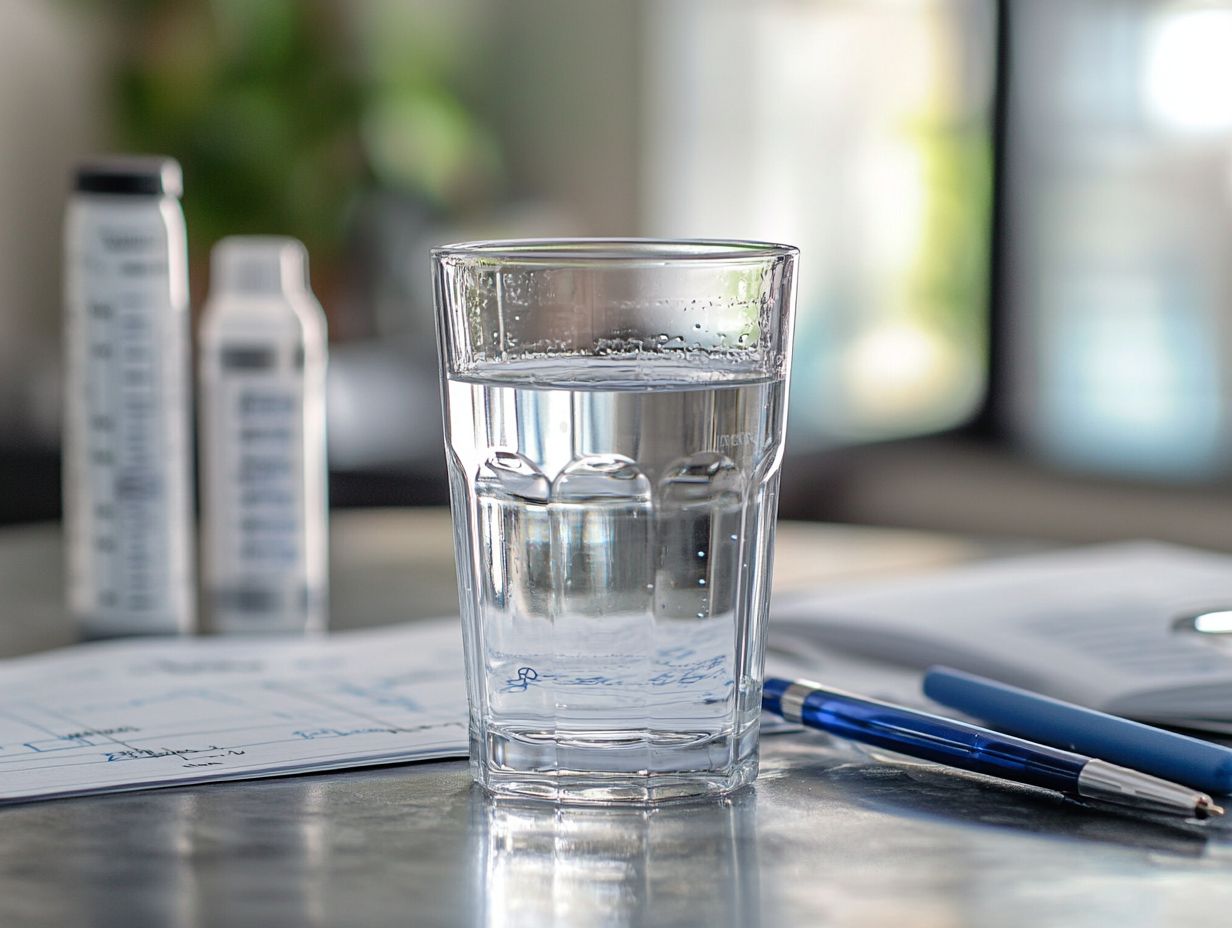
You can test the water quality for home brewing by using a water testing kit or by sending a sample to a lab for analysis. These tests will measure factors such as pH, hardness, and mineral content.
What are the key factors to consider when evaluating water quality for home brewing?
Using brewing tools like BrewFather or Bru n Water can assist in accurately evaluating these factors.
The key factors to consider when evaluating water quality for home brewing include pH, mineral content, hardness, chlorine/chloramines, and total dissolved solids (TDS). These factors can greatly impact the flavor and clarity of your beer.
How can I adjust the water quality for home brewing?
There are various methods for adjusting water quality for home brewing, such as using a water filter or adding brewing salts or acids. It is important to know your water’s baseline quality and consult with a brewing expert for guidance on how to make appropriate adjustments.
Can poor water quality affect the fermentation process?
Yes, poor water quality can affect the fermentation process and result in off-flavors or inconsistencies in the final product. It is important to pay attention to water quality throughout the entire brewing process, not just when adding water to the recipe.
How often should I test the water quality for home brewing?
It is recommended to test the water quality for home brewing at least once a year, or whenever there are significant changes in your water source or brewing process. Regular testing can help ensure consistent results and identify any potential issues early on.

